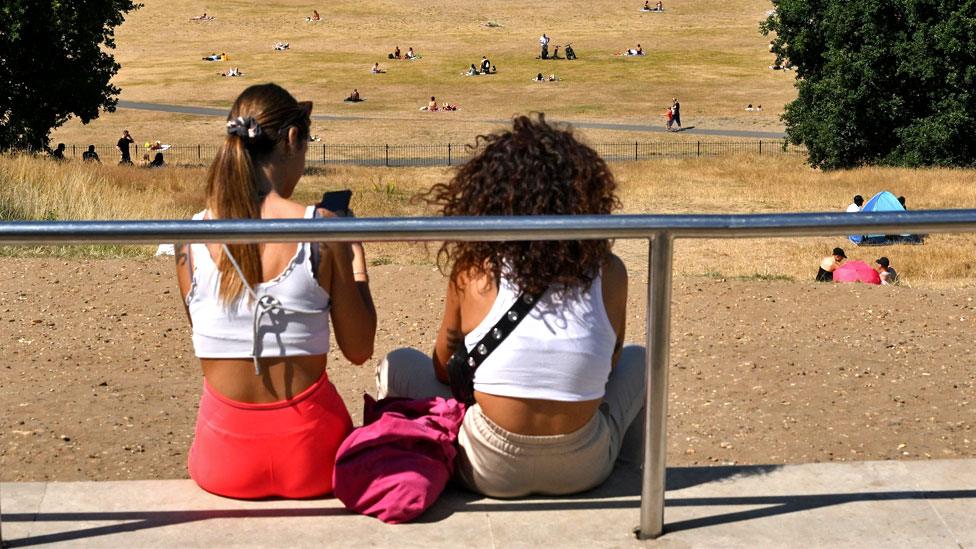UK heatwave: Some food supplies could be hit, warn farmers
- Published
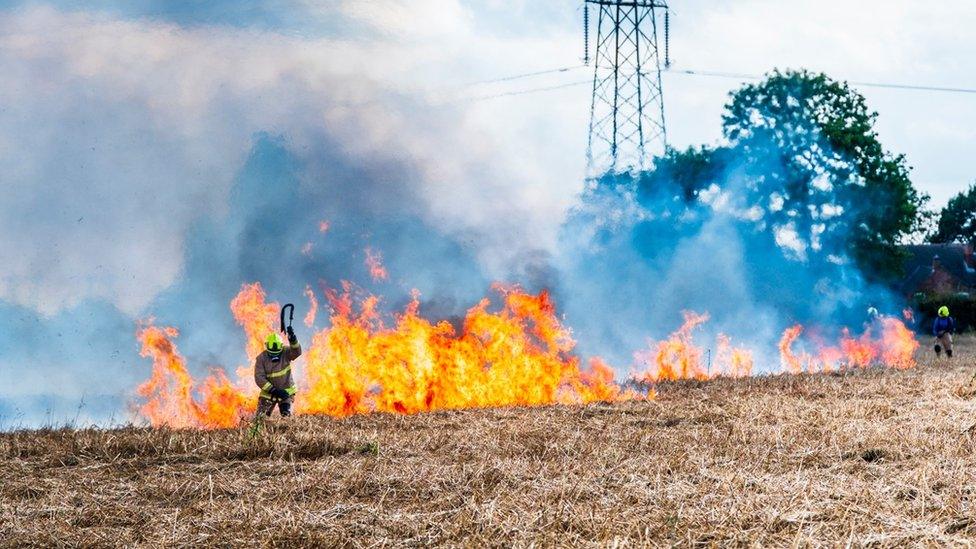
A firefighter tackles a crop fire in hot, dry conditions
Sunday roasts are nothing without peas and potatoes.
But these foods could be in shorter supply, with farmers and their crops feeling "extra pressure" because of the extreme heat.
England and Wales have entered a heatwave forecast to last until Sunday, with a risk of a smaller harvests on farms.
"It's going to be a tough year for farming with these conditions," Tom Duggleby tells Radio 1 Newsbeat.
The 21-year-old runs a farm on the east coast of Scotland with produce including wheat, barley and peas.
Potatoes make up a big part of Tom's crops, travelling from his farm around the country, to companies that make the products which end up on our plates.
He says "there's hardly going to be any [potatoes] this year".
Smaller harvests and fewer crops from farms could make the food we buy in supermarkets cost even more.
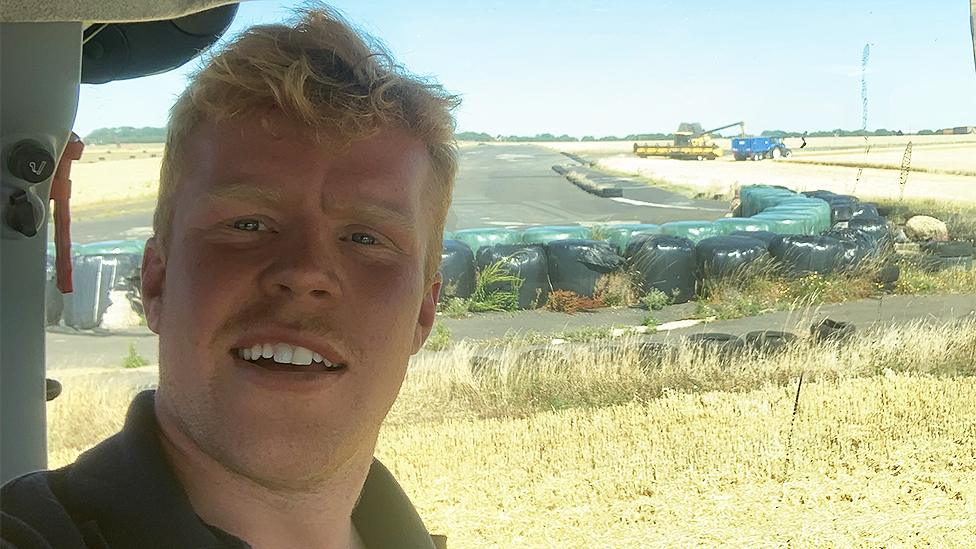
Tom says people can help by pulling over on roads to let tractors by, making it easier for them to get to the fields during harvest time
Like Tom, Nathan Saunders is finding it difficult on his dairy farm in Wiltshire in the hot conditions.
Some of his grass has been burnt off, and he's struggling to grow it due to the heat and lack of rain, following the driest July in England since 1935.
"We're trying to keep the cows healthy and find grass for them to eat," Nathan says.
"[With] the ground not growing, you have to think of alternatives to feed your livestock," the 21-year-old adds.
But a bigger worry for both Tom and Nathan is the risk of actual fires, as the drier conditions increases the risk of crops burning.
Nathan also describes seeing machines such as tractors catching fire.
"There's a lot of moving parts in the heat and it's amazing how fast a field can go up."

Fires are a big problem as they can "wipe out crop straw", ruining the produce, Nathan says
Extreme weather
It is expected to get cooler next week but there's no guarantee that it will rain across the country, according to the Met Office.
The hot weather is not limited to the UK, with global temperatures impacting the supply and prices of essential crops.
Russia's invasion of Ukraine has also had an impact, with grain in short supply pushing up prices.
Scientists have warned that heatwaves are likely to become more common and more extreme globally, after a heatwave in July that would have been "almost impossible" without human-induced climate change.


Follow Newsbeat on Instagram, external, Facebook, external, Twitter, external and YouTube, external.
Listen to Newsbeat live at 12:45 and 17:45 weekdays - or listen back here.
Related topics
- Published20 July 2022
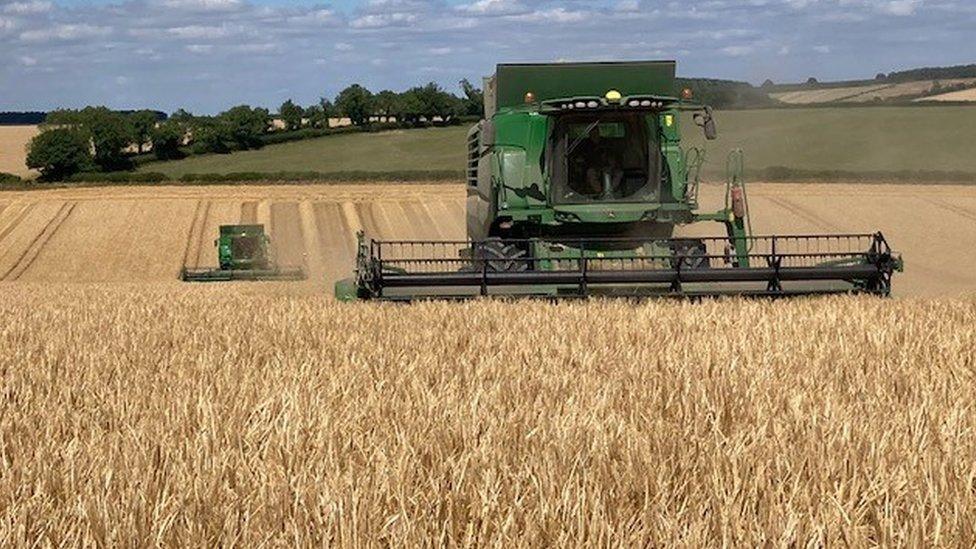
- Published17 July 2022
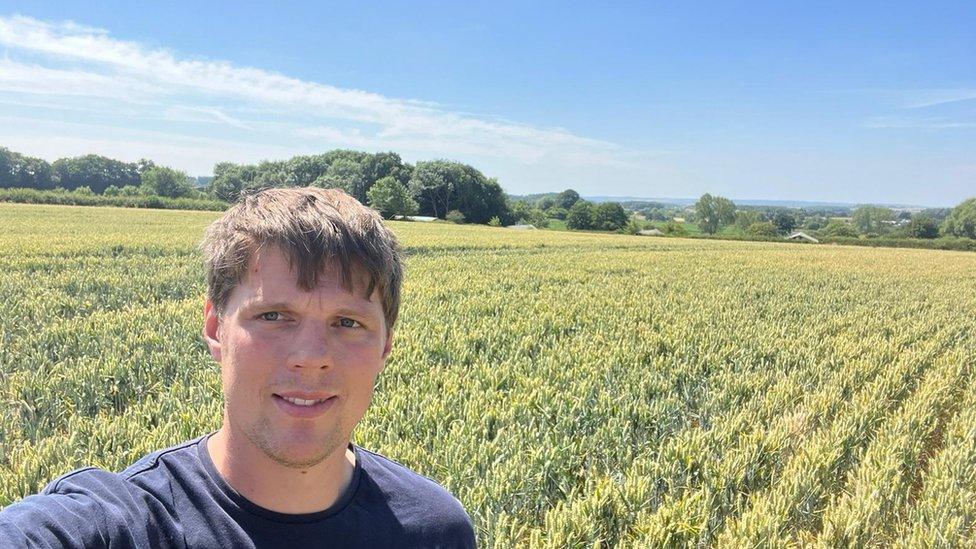
- Published14 July 2022
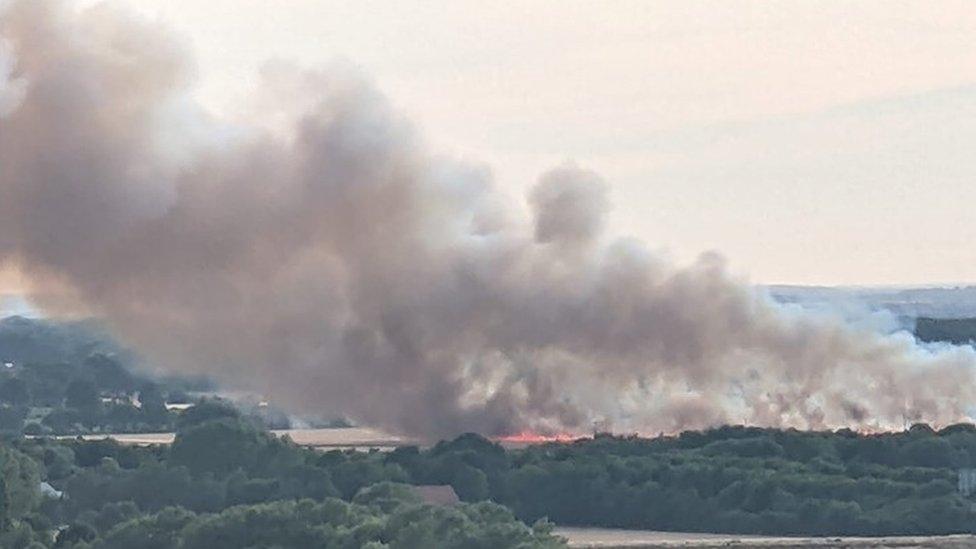
- Published11 August 2022
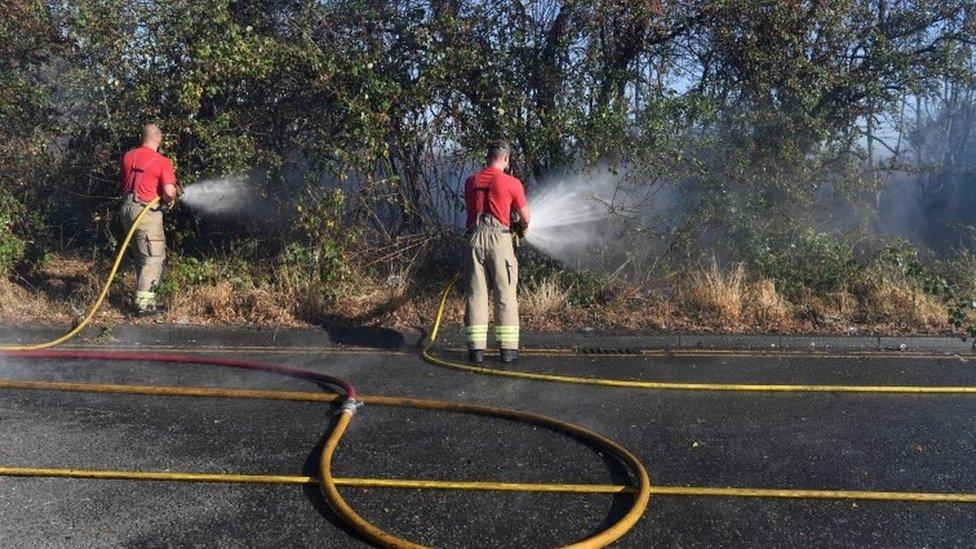
- Published16 June 2022
